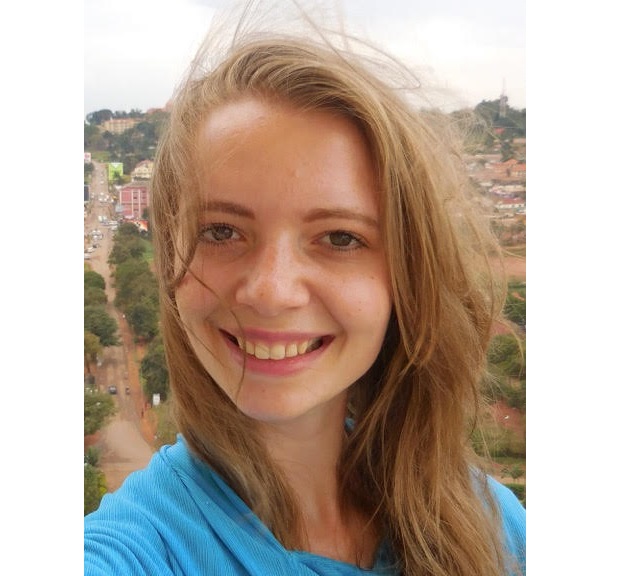
On Monday August 31, 2015, Sophia Koetsier arrives at Entebbe airport in Uganda. She is 21 years old, bright and ambitious, with a great zest for life, about to embark on a new adventure in a faraway country, on a continent she has never been to. That summer she had acquired her bachelor of Medicine at the University of Amsterdam, effortlessly passing her exams, with high grades, while working a part-time job throughout her study.
She had recently decided to continue with Tropical Medicine after getting her master of Medicine. Her long term plan was to become a surgeon or a gynaecologist. But first she was going to work eight weeks as a medical intern in Lubaga Hospital in Kampala. Sophia took well to life in Uganda and its people. As was clear from the extensive and enthusiastic weekly reports she sent us, her parents and her two brothers.
After the internship she wanted to see some more of Uganda, before returning home to the Netherlands on the 10th of November. Three days later we would attend the festive ceremony where Sophia was to receive her official bachelor’s degree certificate from the University of Amsterdam.
We did not pick her up at the airport that day and we did not attend that ceremony.
To this day Sophia has not returned home. (see video page 3)
On Wednesday October 28, Sophia arrived at Murchison National Park together with two fellow students and their tour guide, also driver; they had met in Kampala. He had arranged for the three girls to stay at the Student Centre, a very low budget accommodation in the park, where they arrived around 6 pm. Shortly after that Sophia disappeared.
What happened between arrival and disappearance is not clear. A short search was conducted until it got too dark.
The circumstances surrounding Sophia’s disappearance are obscure and many things do not add up.
Shortly before Sophia went missing her phone had broken down. It was later found in her luggage with her passport, bank pass and other personal items.
Sophia’s disappearance was in the media for just a few days. From the start it was assumed that it must have been a ‘fatal accident’; the girl had mental problems, she was attacked by an animal, eaten by a crocodile, killed herself, drowned, end of story. It was, perhaps conveniently, ignored that no blood traces were found, no signs of a struggle, and no remains were ever found. Rangers said they watched for increased activity by vultures in the days after Sophia went missing. They didn’t see any.
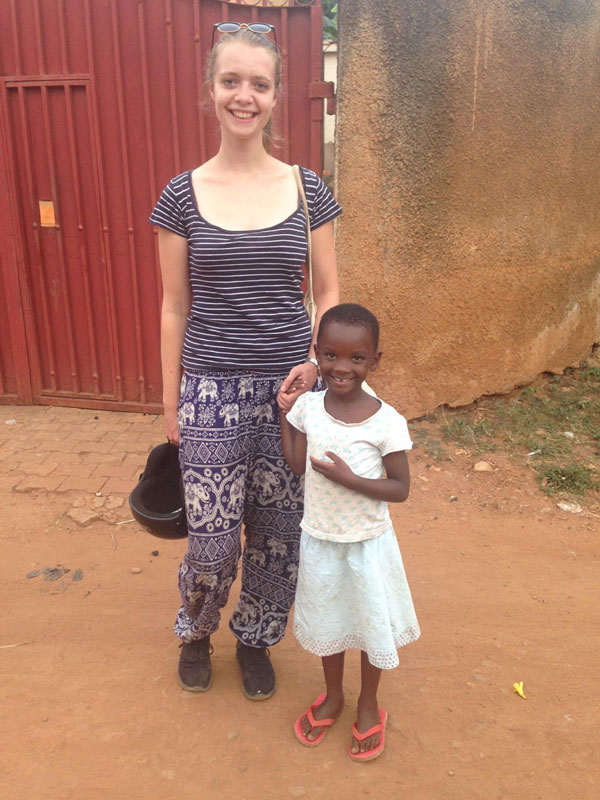
The morning after Sophia’s disappearance one item, allegedly hers, was found some five meters from the river bank. Nothing else. The next morning, Friday, a trail of puzzling items was found along the river bank, spread out over some 45 meters. It included a pair of knickers attached to a branch high up in a tree, one shoe and pieces of torn fabric, some of them tied to dead wood. Those pieces make up one leg of a pair of trousers Sophia owns, but it is not clear what she was wearing when she disappeared. No other garments were found, nor the second shoe.
The items were close to the one that was found the previous morning. According to local police they weren’t found simultaneously because, due to excessive rain, the items had been under water. Photographs do not support this explanation. Forensically trained people who saw the photographs of these items are adamant they have not been under water. They also call it ‘manipulated pieces of evidence’. A question that inevitably comes up is if the items were actually there on Thursday.
On Saturday morning October 31, again a day later, dogs arrived. It is not clear which trace or scent the dogs were following. They did not have Sophia’s scent and their handlers did not ask for it. And there were plenty of scents as many people had been walking in the area by then. A fact the Scene of Crime officers, who arrived that same morning, were apparently unaware of as they cordoned off the area.
It is not known who was present at the Student Centre that evening.
It is not known who entered or left the park that evening or the day after.
No one seems to have been seriously heard.
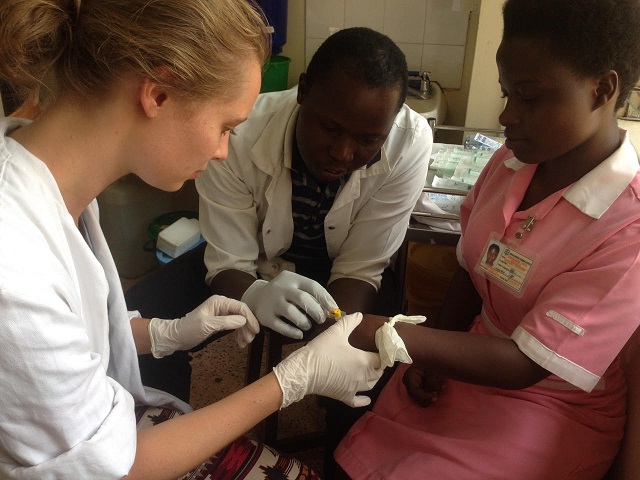
Clearly the investigation left quite something to be desired, as has been observed and acknowledged since then by both Ugandan and Dutch professionals. Words like ‘tunnel vision’ were used, and ‘blaming the victim’.
We can only speculate about the reason why a ‘fatal accident’ scenario was so eagerly embraced from the start, despite the lack of any evidence to back it up. Thereby excluding all other possiblities, including crime. Perhaps it was the easiest option to get rid of an incomprehensible story and many people do not like stories without an end.
It seems that Sophia was not well at the time. Very occasionally she develops sleeping problems which can cause her to become restless. She had also been taking malaria pills from the day she arrived in Uganda. These pills can have unwanted side effects.
However, Sophia is far from crazy and has never shown any sign to anybody at any time of being tired of life. On the contrary, her love of life is immense and her ambition has no bounds.
If you don’t know anything, nothing can be ruled out but we find it hard to believe Sophia laid out those items herself. Like we find it equally hard to believe she went into the river. In one of her weekly reports Sophia, a good swimmer, writes about an outing to Ggaba Beach at Lake Victoria:
‘The only thing lacking was the option to cool off a bit. Even though the locals went swimming in the lake we decided against that, because of the chances of getting a parasite infection.’
Sophia was born on December 7, 1993, our first child and only daughter. Her name means ‘wisdom’ in Greek.
Barely fully born, she looked us straight in the eye, with her big, dark eyes, wide open, as if saying: ‘Well then, here I am’.
And there she was indeed, a personality from the start and keeping those eyes, and ears, wide open whilst going through life. She is very perceptive and observant, with an open mind. Quoting some excerpts from her weekly reports from Kampala is the only way at this moment to hear her voice.
On her serious effort to learn Luganda right after arrival:
‘I have learned some more Luganda now. If you say ‘oliotya?’, which means: ‘hello, how are you?’, to the local people, they really like that. Things like ‘webale’ (thank you), ‘nde bulungi’ (I’m fine) or ‘sula bulungi’ (good night) are really good to know.’
After attending a party she comments on Ugandan women’s dancing prowess:
‘The girls here are truly exceptional dancers. They could really teach us Dutch people a thing or two… Jojo taught me her killer moves and I tried them out immediately. The reaction was: ‘Huh, Sophia is dancing like an African girl?!’
And how she is enjoying her stay:
‘I am starting to get used to Uganda more and more. The way of life, the habits. I am almost considering simply staying in Africa, cause jeez, it’s so relaxed here!’
Most of her stories were about her work in Lubaga hospital. Christine was one of the midwives who often worked with Sophia. She told me about Sophia’s eagerness to learn things and to be useful, how quickly she picked things up. ‘A born doctor’ according to Christine. In Sophia’s own words:
‘The next day was an interesting day on the maternity ward. I spent all day on labour ward and was really useful. Christine taught me how to catch a baby after delivery. This was harder than I thought, but Christine guided me. After that I took the baby away for post natal care. I could do this several times. It’s so nice to do this for those tiny creatures and it is really great to be useful.’
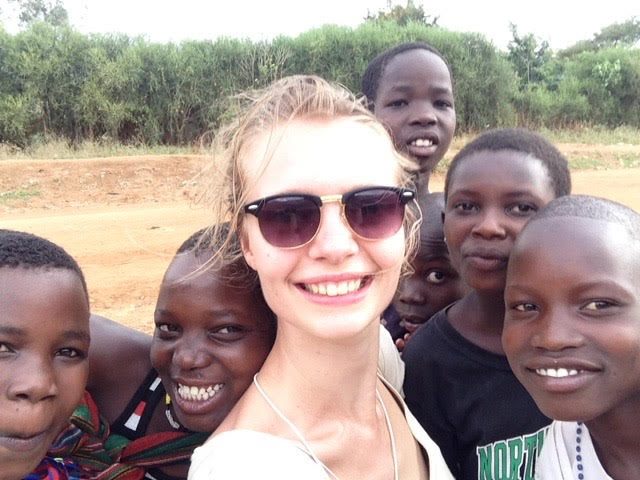
On October 22 she writes:
‘Before we left I really wanted to say a warm goodbye to everyone in the hospital.
We gave away our medical splash goggles and midwives and surgeons were really happy with them. Our white coats we gave to Christine, who was really eager to have them. We also exchanged email addresses with her. After saying goodbye to everyone in maternity we stopped by the other wards.
I sincerely regret my stay here is over. All the people in the hospital are so sweet. I will really miss them and hope to be back one day. Who knows, as a doctor of tropical medicine?’
The next day Sophia starts her roundtrip. Six days later, Wednesday October 28, 2015, she disappears.
Every 28th day of each month is a difficult day for us. A painful reminder that another month has passed, without Sophia. As every week, every day means one more day, one more week, without Sophia. And we do not know if the passing of the days, weeks and months, will bring us closer to her, or further away from her.
The 28th of October marks four years without Sophia, four years of painful, devastating insecurity, four years of wondering what happened to our beloved girl; is she still alive, where could she be, under which circumstances?
No child is more present than a missing child. Perhaps only parents in a similar situation can truly understand what it is like, not knowing what happened, wondering whether your child is alive and worrying about their fate, each and every day. I know there are many of you in Uganda, suffering from the same ordeal, especially in the north.
From the moment they are born, our children are, and will always remain, our Achilles heel and we shall never give up on them.
It has pained us immensely to see the case so easily dismissed. We have been fighting ever since to get people, and especially authorities, out of that ‘fatal accident’ tunnel. It seems we are starting to reap some of what we have sowed but everything is going too slow, of course, as for us every day still counts. We cannot and will not rule out she might be somewhere. But where? And how?
We can use all the help we can get to solve the mystery of Sophia’s disappearance.
Four years without Sophia is unreal, incomprehensible and unbearable.
It is hope that keeps me together, that makes me come back to Uganda, time after time, always hoping to find Sophia and take her home.
When nothing is certain, everything is possible and miracles do happen.
****
Marije Slijkerman
SOCIAL MEDIA: #findSophiaK @findSophiaK Facebook
EMAIL: contact@findsophia.org
******
 The Independent Uganda: You get the Truth we Pay the Price
The Independent Uganda: You get the Truth we Pay the Price



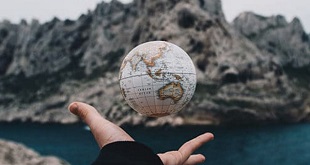
It is indeed saddening. Hopefully nothing wrong happened to her. It’s been years but since all stories don’t add up due to irresponsible search teams by then. It would be best to have 50/50 chance of Sofie living. But what happened to their tour guide?
A tour guide from Kampala? That is something not advisable. Tour guides are provided by the park management because these people are very well aware of their surroundings and place of operations. But no matter what. A tour guide from Kampala unless this person was sent from the place you intended to go.
Because everyone believes they can be tour guides just because they know few ideas but that doesn’t make them one. A tour guide must first ensure clients safety first. But look Sofia’s incident happened due to irresponsible personal cliamed tour guide…..
Most people in KAMPALA disguise in certain occupation…….that’s why sometimes evenpublic taxis are driven by people without permits they drive because they know.
If only the tour guide can be questioned again after all these years I believe he may have a different story.